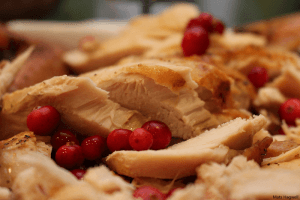Are you in charge of cooking the Christmas dinner this week? Here’s a reminder from our infection prevention and control team of how to prepare and cook food safely.
Turkey
Turkey is a rich source of the essential amino acid tryptophan which is used to create the neurotransmitter serotonin and melotonin that helps send you to sleep. However, cook thoroughly until juices run clear to avoid getting campylobacter. Find out more about cooking your turkey by visiting NHS Choices.
Brussels sprouts
Brussels sprouts are a fantastic source of beta carotene and other important minerals like magnesium. Sprouts are susceptible to salmonella though, so don’t eat any raw and be sure to peel off the outer layers before cooking.
Red cabbage
The deep red colour in red cabbage comes from a group of compounds called flavanoids which can have a transient lowering effect upon blood pressure. However, cabbage, lettuce, chard, kale, spinach and other leaves all carry a high risk of carrying E. coli which can be traced to the droppings of livestock or wild animals in the area, so remove the outer leaves before washing.
Washing vegetables
When you wash vegetables, don’t just hold them under the running tap. Rub them under water, starting with the least soiled ones first, and give each of them a final rinse. Washing loose produce is particularly important as it tends to have more soil attached to it that pre-packaged fruit and vegetables. Find out more about washing vegetables.
NHS Choices also has some great ideas for Christmas leftover recipes and healthy Christmas snacks.
Image courtesy of Mat Hagswell.
Published: 23 December 2014

